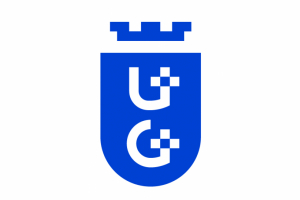
COURSE DESCRIPTION
The Cultural Communication course, taught entirely in English, is designed for candidates with an interest in contemporary culture, literature and linguistics, who want to acquire a broad range of theoretical and practical knowledge as well as skills necessary for work in international cultural institutions and organisations.
Drawing on the research and teaching experience of the Faculty of Languages at the University of Gdańsk, the interdisciplinary study programme explores various aspects of communication within culture, through culture and between cultures. It includes courses on audiovisual and digital culture; theatre, dance and performance; European and world literatures and their intermedial adaptations; the interrelations between culture and politics; as well as classes on linguistic analysis of discourse and social aspects of language. Taking the cue from its location in a city where for centuries the cultures of Western and Eastern Europe have met in fruitful dialogue, the programme also offers an introduction to the literature and culture of Poland and Central and Eastern Europe.
The practical module includes courses in project management and management of cultural organisations, as well as IT solutions necessary for the modern workplace. This is supplemented by a rich and varied programme of practical English for Business, Public Relations and Diplomacy. Based on authentic materials, the courses are designed not only to develop students’ language skills, but also to provide a grounding in the key areas of international exchange and cooperation.
All lectures and classes are taught by experienced lecturers and are held in modern, fully equipped classrooms and language laboratories. In addition to the study programme, students may join student societies, attend guest lectures by visiting scholars and publish their own work in student journals. They may also take part in the Erasmus+ exchange programmes, also within the SEA-EU alliance, visiting one of the partner universities in Germany, France, Italy, Croatia, Norway, Malta or Spain. After classes, the historic city of Gdańsk, the neighbouring seaside resort of Sopot, and the modern port of Gdynia offer a vibrant arts and culture scene in addition to their sandy beaches.
Key knowledge and skills
Graduates of Cultural Communication have the cultural expertise and language skills necessary to pursue a career in international cultural and artistic institutions. They may also take up positions in the agencies of the European Union, diplomatic missions, local government institutions, the media, international organisations and corporations.
|
Kryteria kwalifikacyjne konkurs świadectw dojrzałości 1,2,3,4,5,6) |
|
|
przedmiot |
mnożnik przedmiotu |
|
język angielski |
0,5 |
|
język ojczysty kandydata (jeżeli językiem ojczystym jest język angielski, to wówczas inny język obcy) |
0,3 |
|
jeden przedmiot do wyboru spośród: biologia, chemia, fizyka/fizyka i astronomia, geografia, historia, historia sztuki, język obcy z wyjątkiem języka angielskiego i języka wybranego powyżej, język łaciński i kultura antyczna, matematyka, WOS |
0,2 |
Uwaga: Studia odpłatne prowadzone w języku angielskim. Wysokość odpłatności ustala Rektor zarządzeniem. |
|
Limit przyjęć zostanie podany po jego ustaleniu przez Rektora.
